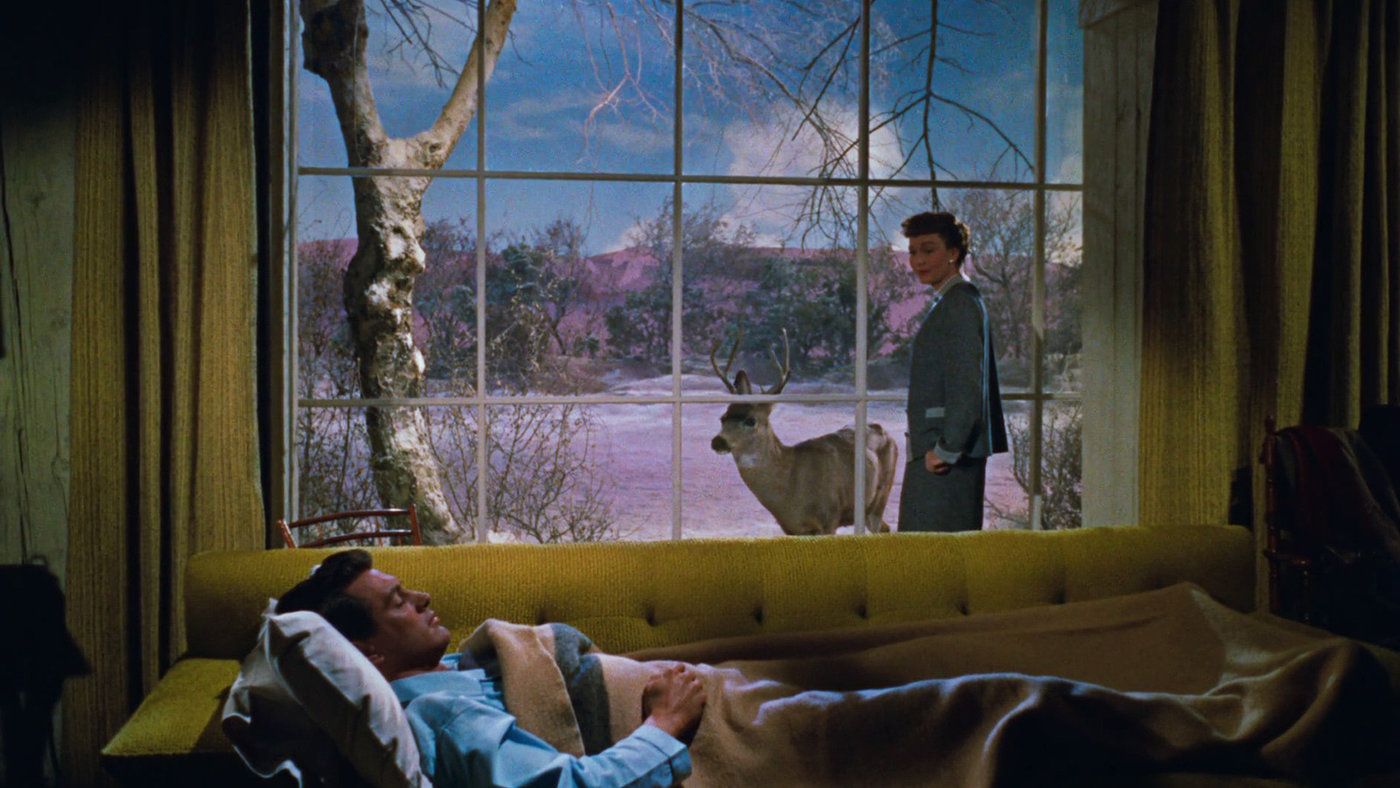All That Heaven Allows

Two capsules on the film, each from a different platform:
Originally published on Letterboxd on 13/07/23
One of those rarefied works of art that brings tears to my eyes not because of the magnitude of emotional turmoil on display, but because of how gloriously radiant its images are. Beyond the Rock Hudson of it all, this is also one of the most important queer texts of the Technicolour era, along with Johnny Guitar.
Originally published on 24/12/23 for the UCL Film & TV Society's Journal
The second of Douglas Sirk’s collaborations with Jane Wyman and Rock Hudson, All That Heaven Allows, might appear to be a lesser work than the sweeping multigenerational tragedy of Written on the Wind, a film that derives much of its dramatic potency from a whirlwind of obfuscation and misinterpretation, not unlike the pulpy romance paperbacks the director’s work was unfavourably (and unfairly) compared to. It is precisely its quietude, however, that renders its melodrama perhaps even more moving than the latter film. Framed by the crystalline veneer of windows frosted by winter, the film follows Cary Scott, a widow enmeshed within a web of social demands- from her children, her haughty country club colleagues and the many aristocrats vying for her affection. Arriving, clad in crimson flannel whose exuberance is magnified by the film’s gorgeous Technicolour textures, is Ron Kirby, a gardener who is a decade her junior- a fact that arouses scandal when their tryst develops into a relationship fraught with risk.
Lit by the amber glow of fireplaces and streams of sunlight fragmented by kaleidoscopic glass mosaics, the film renders its Christmastime assemblages as not symbols of joy but of gloom, with the glint of baubles and gold gift wrapping acting as reminders of the gilded cage that entraps Sirk’s lovers-in-revolt. In one of its most unsettling images, Cary gazes into the Stygian mirror of the television set (a Christmas gift), seeing only a reflection of the absence that tugs so insistently at her heart. The looming shadow of Christmas also renders the film a richly observed exploration of retreat from the suffocation of festivity, informed closely by the transcendental naturalism of Thoreau’s Walden. Blushing with the passions of love and hatred in equal terms, it is the magnum opus of one of the great 20th century melodramatists.
